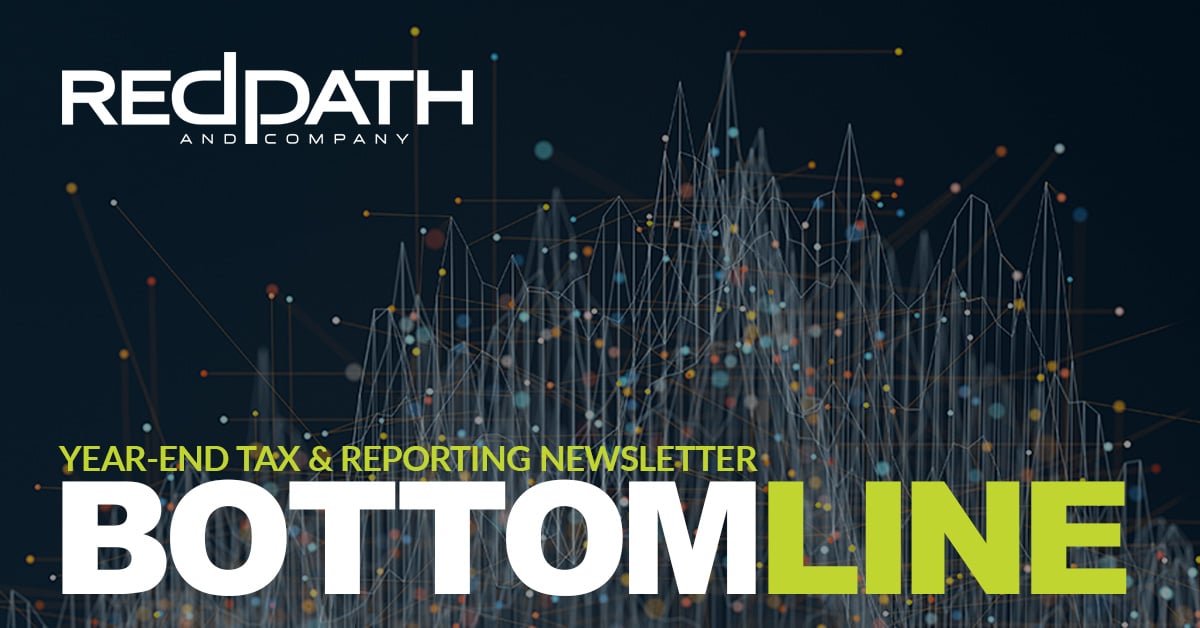Redpath Welcomes Mike Dunkle as a Transaction Advisory Services Partner
ST. PAUL, MN – February 3, 2026 – Redpath and Company is pleased to welcome Mike Dunkle as a Partner in the firm’s Transaction Advisory practice....
2 min read
 Christine Bentson, CPA, RPA, CEBS
:
July 2, 2019
Christine Bentson, CPA, RPA, CEBS
:
July 2, 2019

July 2, 2019 — Health plans are an important benefit that organizations offer their employees and starting in 2020, there are two new ones that organizations wanting to offer HRAs can consider.
The HRA (Health Reimbursement Arrangement) is a type of plan funded by employer contributions and allows employees to be reimbursed for out-of-pocket medical expenses. There can be significant benefits to doing this as the contributions are tax deductible to the employer, and contributions do not increase the amount of payroll or income tax payable by recipient employees.
The two new offerings, effective January 1st, 2020, are the Individual Coverage HRA (ICHRA) and the Excepted Benefit HRA (EBHRA).
The ICHRA can be used by employers of any size, the eligibility can be structured using permitted employee classes as long as the eligibility/terms are the same for all employees within the class. It cannot be offered to employees with group coverage, meaning the employee must purchase individual insurance to participate—this includes insurance purchased on public exchanges. The employer can still maintain a traditional group insurance plan for some classes while providing the ICHRA for other classes.
Employees not eligible for this HRA plan are those who have no individual insurance, including those that may be covered under a spouse’s group plan.
Some examples of the permitted employee classes include:
Organizations can vary how they combine these above attributes, but the resulting percentage of all employees must meet established minimums of:
Formal plan documents will be required, and additionally, a notice will need to be given to all employees at least 90 days prior to the beginning of the plan year. The notice alerts employees that the ICHRA offer may limit their eligibility for a premium tax credit when purchasing insurance on the exchange, even if they choose not to participate in the ICHRA.
While the ICHRA has benefits including the lack of maximum contribution limits, availability to businesses of any size, tax-free, discretion to form eligible classes with differing allowance amounts, and an absence of minimum participation requirements, there are also downsides.
This plan is not available to employees who are uninsured or on a spouse’s healthcare plan. The plan is also not stackable with premium tax credits, is more complex unless the organization appoints a designated plan administrator, and employees will need instruction to properly utilize the plan. Finally, it may be difficult to create classes that are flexible enough to offer differentiating benefits to the most exceptional new-hire candidates.
The EBHRA is a way for employers to help employees pay for benefits that would be excepted (excluded) under the coverages of their group health insurance plan. This will include an additional allowance of $1800 per year (indexed for inflation after 2020) to reimburse Code Section 213(d) expenses not covered under the group health plan, premiums and cost sharing for vision and dental policies, as well as COBRA continuation coverage premiums and cost sharing.
Employers considering an HRA option will need to carefully compare these two new offerings, prior to the 2020 effective date, to determine if either are the right fit for the company or if one of the existing HRA options, which will continue to be available, may be a the best fit instead. If HRAs are structured appropriately, they could represent a useful differentiator not only for matching your health care plans to the needs of your current workforce—but also for securing new talent.

ST. PAUL, MN – February 3, 2026 – Redpath and Company is pleased to welcome Mike Dunkle as a Partner in the firm’s Transaction Advisory practice....

The Redpath and Company BottomLine Newsletter ishere!

As 2025 drew to a close, the Governmental Accounting Standards Board (GASB) issued Statement No. 105, Subsequent Events. While the requirement to...